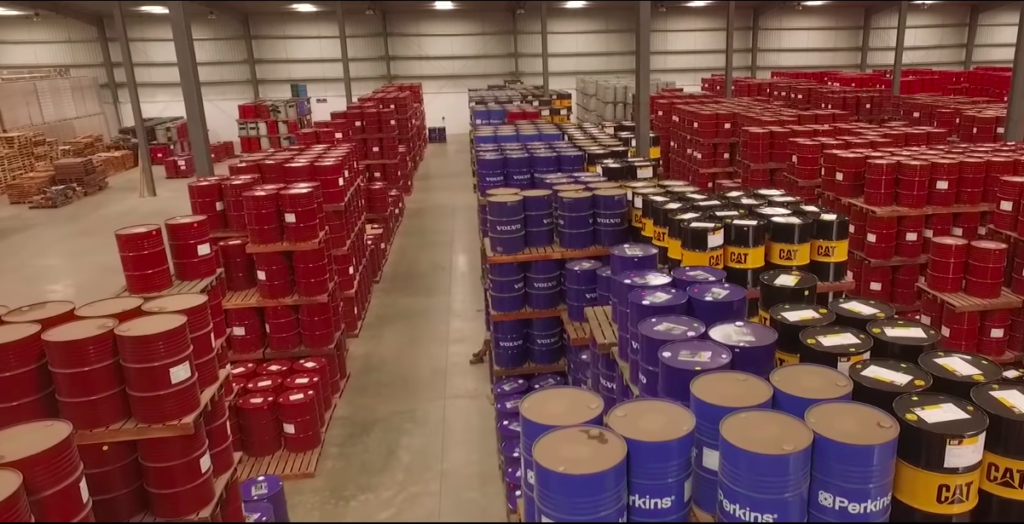
Bangalore, also known as the Silicon Valley of India, is a city that has rapidly evolved into a bustling economic hub. Alongside its reputation for IT and technology, Bangalore has become a crucial player in the world of logistics and supply chain management. At the heart of this transformation lies the critical infrastructure of warehouses in Bangalore. In this article, we’ll explore the significance of end-to-end warehousing solution, their role in the city’s growth, and the challenges and opportunities they present.
Bangalore’s Booming Economy and Its Dependence on Warehousing
Bangalore’s economy has grown exponentially in recent decades, attracting businesses from various sectors, including technology, e-commerce, manufacturing, and pharmaceuticals. This economic growth has created a high demand for warehousing services. Warehouses in Bangalore serve as the backbone of supply chain operations for countless companies, offering storage, inventory management, and distribution solutions.
Geographical Advantage: Bangalore’s Strategic Location
One of the primary reasons for the proliferation of warehouses in Bangalore is its strategic geographical location. Situated in the southern part of India, Bangalore enjoys excellent connectivity to major ports, airports, and road networks. This central location makes it an ideal choice for companies looking to streamline their distribution networks and reduce transportation costs.
E-commerce and Warehousing in Bangalore
The e-commerce boom in India has significantly contributed to the growth of warehouses in Bangalore. With the rise of online shopping, companies like Amazon, Flipkart, and BigBasket have established large fulfillment centers in the city. These fulfillment centers are strategically positioned to ensure quick and efficient deliveries to customers across India.
Infrastructure Development: Key to Bangalore’s Warehousing Success
To meet the increasing demand for warehousing services, Bangalore has invested heavily in infrastructure development. The city boasts a wide array of warehouses, ranging from small-scale storage facilities to state-of-the-art logistics parks. These warehouses are equipped with modern technology, including automation, RFID tracking, and inventory management systems, to optimize operations and enhance efficiency.
Challenges Faced by Warehouses in Bangalore
While the warehousing sector in Bangalore offers immense opportunities, it also faces several challenges:
a) Land and Space Constraints: Bangalore’s rapid urbanization has led to limited availability of land, driving up real estate prices. Warehousing companies often struggle to find suitable locations for expansion.
b) Traffic Congestion: Bangalore is notorious for its traffic congestion, which can significantly impact the timely movement of goods to and from warehouses. Managing logistics in such an environment is a constant challenge.
c) Skilled Labor Shortage: Finding skilled labor for warehouse operations can be difficult, especially given the competition from the city’s thriving IT sector.
Sustainability and Warehousing in Bangalore
As the world becomes more conscious of environmental sustainability, warehousing in Bangalore is adapting to meet these demands. Many warehouses are implementing eco-friendly practices, such as solar power generation, rainwater harvesting, and energy-efficient lighting. This not only reduces their carbon footprint but also attracts environmentally conscious clients.
Future Trends and Opportunities
The future of warehousing in Bangalore looks promising, with several trends and opportunities on the horizon:
a) Cold Storage Facilities: The growth of the food and pharmaceutical industries is driving the demand for cold storage facilities. End-to-end warehousing solution are expected to see an increase in the development of such specialized spaces.
b) Last-Mile Delivery Solutions: With the rise of e-commerce, last-mile delivery has become crucial. Warehouses located strategically within the city are likely to witness increased demand for efficient last-mile solutions.
c) Integration of Technology: Warehouses in Bangalore will continue to integrate advanced technologies like IoT, artificial intelligence, and blockchain to enhance operational efficiency and transparency.
d) Government Initiatives: The government of Karnataka, where Bangalore is located, has introduced policies to support the warehousing sector. These initiatives are expected to further boost the growth of warehouses in the region.
Additional Read: Navigating the Warehouse Rental Market in India: Tips and Tricks
Conclusion
Warehouses in Bangalore are not just storage spaces; they are vital components of the city’s thriving economy. Their strategic location, modern infrastructure, and adaptability to industry trends have made them indispensable for businesses across various sectors. While challenges such as space constraints and traffic congestion persist, the warehousing sector in Bangalore remains resilient, constantly evolving to meet the demands of a rapidly changing logistics landscape. As Bangalore continues to grow, so too will the importance of its warehouses in shaping the future of supply chain management in India and beyond.